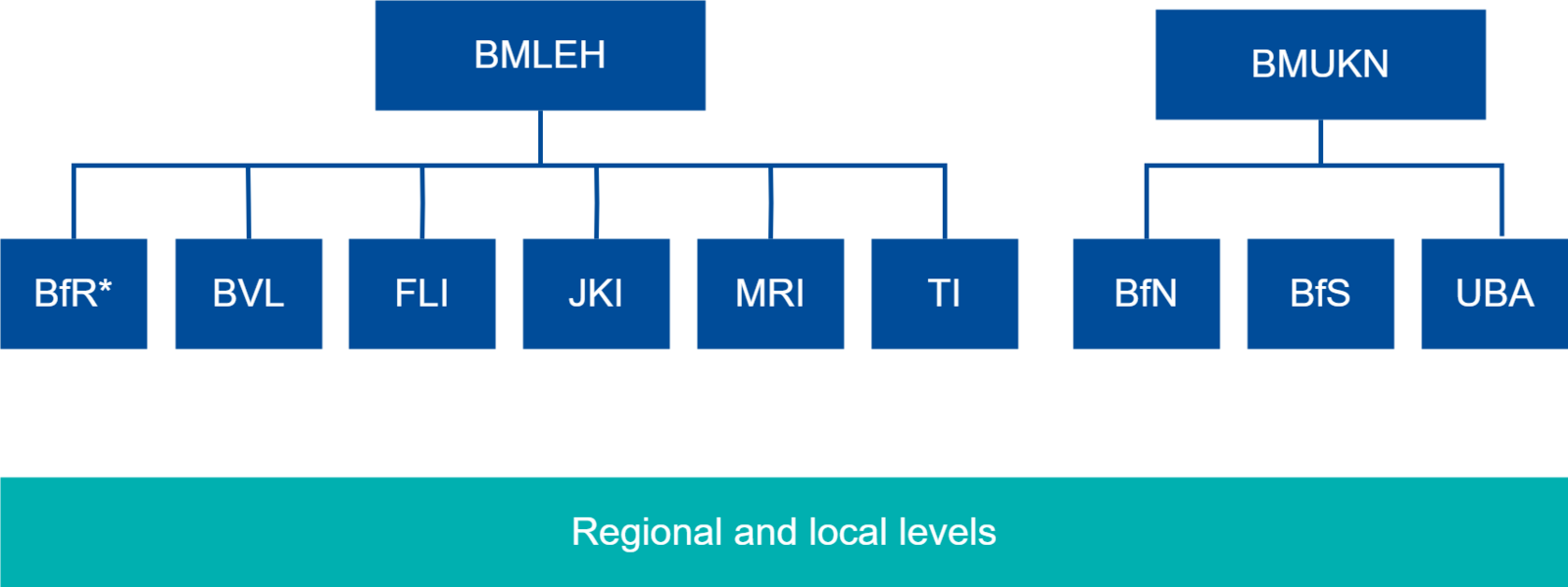Last updated on 2024-09-16
Federal Ministry of Agriculture, Food and Regional Identity
https://www.bmleh.de/EN/Home Bonn and Berlin
- Agricultural and food policy, including food and feed safety
The Federal Ministry of Agriculture, Food and Regional Identity (BMLEH) is responsible for agricultural and food policy as well as food and feed safety. The BMLEH is supported by several scientific advisory boards, e.g. for agricultural policy, food and consumer health protection. The institutions in the BMLEH's portfolio include higher federal authorities, federal research institutions, legally independent institutions and institutions of the Leibniz Association.
The BMLEH is the central competent authority (CCA) for EU legislation in the field of food and feed safety. E.g. with regard to maximum residue levels and contaminants in food, food contact materials and articels, hygiene and GMOSs in food and feed. At national level the BMLEH is the CCA responsible for legislation in the field of food and feed safety.
The BMLEH is the ministry in charge of matters of general food hygiene that are regulated in Regulation (EC) 852/2004. The BMLEH is also responsible for drawing up the report on the controls carried out by the Länder on the marketing and use of plant protection products, pursuant to Art. 68 of Regulation (EC) 1107/2009.
In the field of feed safety and animal nutrition, it is responsible for drafting legislation at the federal level and for coordinating its implementation with the assistance of the Federal Office of Consumer Protection and Food Safety (BVL). The German Federal Institute for Risk Assessment (BfR) advises the BMLEH on risks of food safety.
The BMLEH is responsible for the federal research institutions participating in the EFSA network in accordance with Article 36 of Regulation (EC) 178/2002, which provide advice on various matters. These include the Friedrich-Loeffler-Institut (FLI) in the area of animal diseases, animal welfare, animal husbandry, animal nutrition and farm animal genetics, the Julius Kühn-Institut (JKI) with regard to plant health and plant protection matters, and the Max Rubner-Institut (MRI) in the field of nutrition and food. Furthermore the Johann Heinrich von Thünen-Institut (TI) provides advice on matters concerning plant health, genetically modified organisms, animal husbandry, as well as environmental risk assessments.
Consolidated scientific findings are crucial for political decisions. Therefor BMLEH can draw on its well-established specialist research institutions. This departmental research includes the aforementioned four federal research institutes as well as the German Federal Institute for Risk Assessment (BfR) and the German Biomass Research Centre (DBFZ). Innovative research and competent scientific policy advice are closely linked tasks of these institutions.

